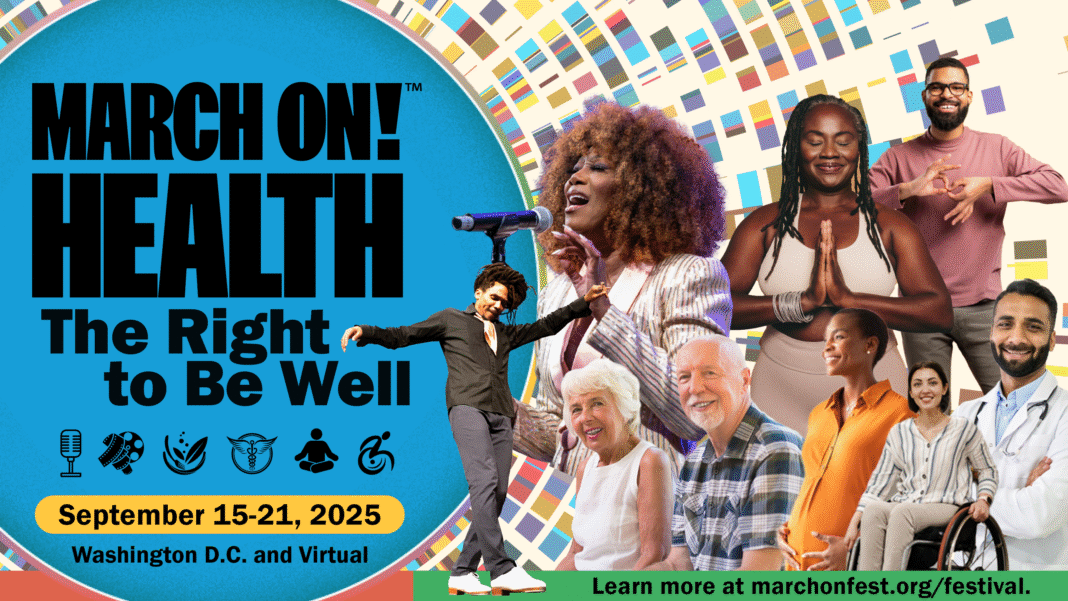The Significance of the March On! Civil Rights Legacy Project
A New Era for Civil Rights Awareness
The rebranding of D.C.’s annual Civil Rights Legacy Project to “March On!” marks a transformative step in promoting civil rights and social justice. Kicking off on September 15, the festival not only showcases films but also incorporates a variety of artistic expressions through live performances, exhibits, and panel discussions. Recognizing the historical significance of the Civil Rights Movement, this year’s theme, “March On! Health: The Right to Be Well,” emphasizes health as a fundamental human right tied to broader social justice issues.
Artistic Leadership
At the helm of this year’s festival is Isisara Bey, an accomplished news writer and producer. Under her artistic direction, the festival has evolved into a year-round arts platform, shedding its previous seasonal limitations. Bey emphasizes the importance of connecting historical narratives with contemporary issues, stating, “The Civil Rights Movement was more than an isolated period in American history but rather a continuous, ongoing movement.” This perspective invites audiences to recognize the relevance of civil rights activism today.
Engaging the Youth
Bey’s initiatives aim particularly to resonate with younger generations. By integrating modern technology and social media, the festival seeks to engage youth who often perceive the Civil Rights Movement as distant or irrelevant. “When youth suggest that the Civil Rights Movement has little to do with their lives today, we challenge them to take a closer look at our shared history,” she explains. The festival’s approach encourages participants to not only learn about this pivotal chapter in American history but also to draw lessons applicable to their lives today.
A Focus on Health Equity
One of the festival’s key objectives is to address social justice issues related to health. With events like “Critical Condition: Health in Black America,” the discussions delve into the stark disparities faced by Black Americans in healthcare. This documentary screening, coupled with expert panels, critically investigates the underlying factors contributing to these disparities, emphasizing that health is not merely a personal issue, but a societal responsibility rooted in equity and access.
Bridging Generational Gaps
The programming this year is designed to bridge gaps between generations and lived experiences. Bey asserts that the historical narratives told in the festival contribute significantly to societal norms and encourage understanding across different communities. The stories shared during March On! serve as a reminder that the fight for justice transcends time, impacting people of all ages today.
Diverse Event Lineup
The festival offers a myriad of events and screenings, ensuring that there’s something for everyone. From “Albany Road,” a film about personal relationships, to the Vivian Malone Courage Award ceremony honoring influential figures, these events take place across various locations in D.C., enhancing accessibility and participation.
Community Dialogue
Interactive components, such as community dialogues following film screenings, foster deeper conversations on community issues and relationships. For instance, after “Albany Road,” the Truth and Relationships Town Hall allows participants to engage in meaningful discussions about communication and understanding in their personal lives.
The Power of Multimedia
According to the March On! website, the festival utilizes multimedia—combining film, performing arts, and visual storytelling—as a powerful tool to bring to life the narratives of both well-known figures and everyday heroes from the Civil Rights Movement. This approach underscores the festival’s commitment to making history feel immediate and relevant.
Focus on Sociocultural Issues
Bey highlights various sociocultural issues within today’s context, including race, gender, and sexual orientation, asserting that understanding these intersections is critical for advancing justice. “All Americans have a right to be well and to hold various perspectives,” she notes, reminding us of the importance of inclusivity in discussions about civil rights.
Educational and Inspirational Outcomes
March On! serves as not just an event, but an educational platform that empowers individuals and communities. By showcasing the sacrifices and triumphs of past activists, the festival encourages participants to recognize their potential to influence change in today’s world.
Accessible Participation
Understanding the importance of both in-person and virtual engagement, the festival offers options to connect online. This flexibility ensures that individuals from all backgrounds can participate in learning about civil rights, making the experience available to a wider audience.
Ongoing Legacy
Taking part in March On! is a profound way for individuals from all walks of life to engage with the ongoing relevance of the Civil Rights Movement. By exploring the festival’s artistic offerings, attendees not only celebrate history but also contribute to the collective understanding of our present and future.
For more details or to purchase tickets, visit the festival’s official website at March On! Festival.



